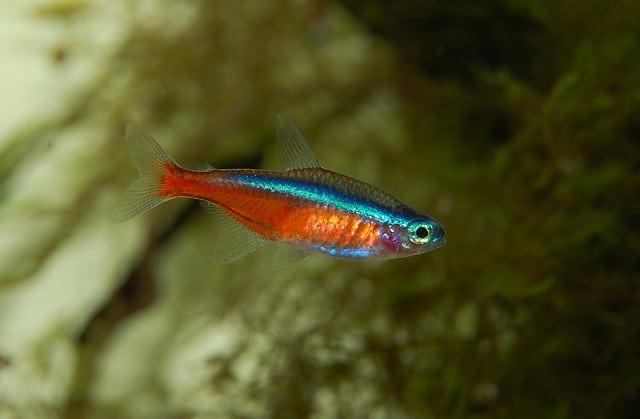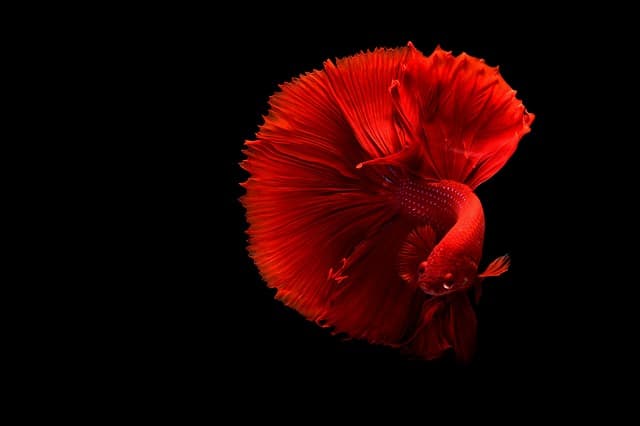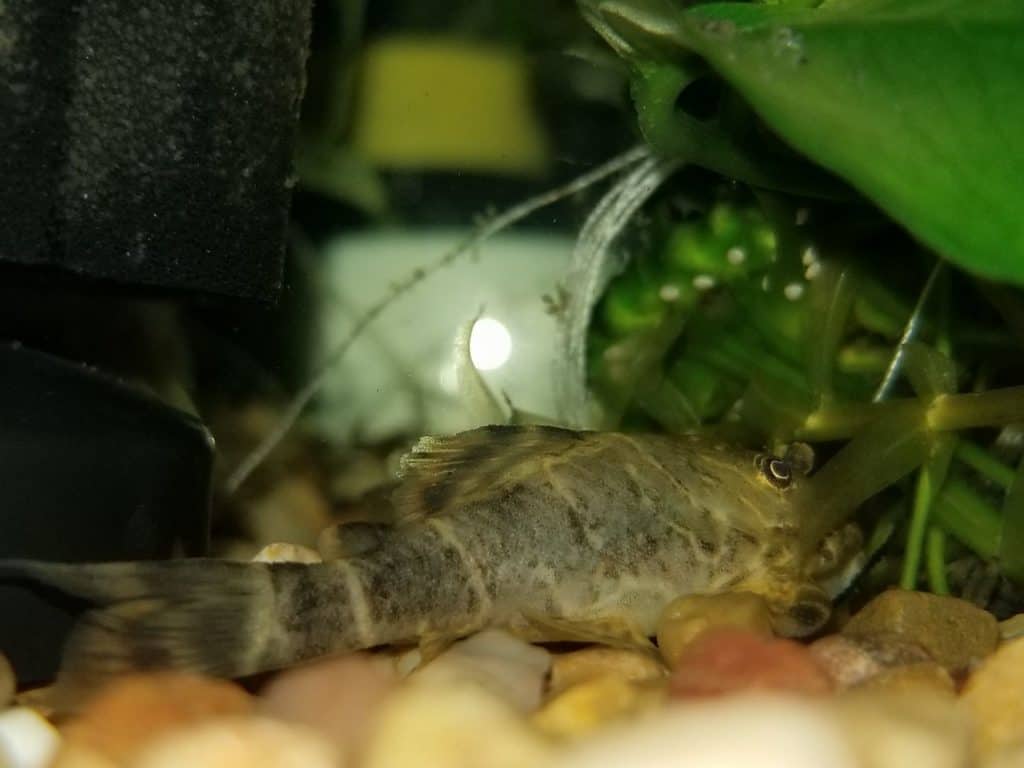Goldfish are typically big by nature. They have voracious appetites and can grow to lengths of 12 inches or more when kept in an extra- large aquatic environment like an outdoor pond. But what should you do if your fish appears abnormally bloated or fat?
To prevent goldfish from becoming too ‘fat,’ there are 5 things you can do: 1) feed them less often; 2) provide them with more fresh food options; 3) increase the water temperature if it’s too cold and 4) treat the fish with antibiotics (if dropsy is the cause); 5) decrease the water temperature if it’s above the recommended range and increasing their appetite.
Now that you know what to do to stop your pet goldfish from looking fat, let’s explore this topic further. Together we’ll learn what causes fish to appear bloated, what to feed them to prevent swelling, how stress/poor water conditions affects fish size, and if it’s possible for goldfish to get so big they explode?
So, if you’re ready to learn more about goldfish swelling and what to do to remedy the problem, then let’s get right to it!
Why is My Goldfish Stomach Swollen?
Goldfish appearing bloated or ‘fat’ isn’t that uncommon in captivity. There are 5 main causes of goldfish swelling which include the following:
Overfeeding/Improper Diet
Goldfish typically become ‘fat’ or start to look swollen around the midsection due to diet. Overfeeding them poor quality food can lead to digestive issues and constipation. Feeding them less often with fresh foods like vegetables or higher quality fish food should remedy the problem.
Edema or Dropsy
Dropsy is typically the result of stress caused by poor water conditions or a rapid drop on temperature. If the aquatic environment is plagued with ammonia or nitrite spikes and the tank/pond is too cold, goldfish will often appear ‘fat’ or bloated.
Too Warm Water
Just as low water temperatures can affect fish size, so too can high temperatures. If goldfish are kept in a tank/pond that’s warmer than recommended, they’ll become more active and as a result, consume more oxygen and eat more food. This can cause them to gain weight and appear bloated.
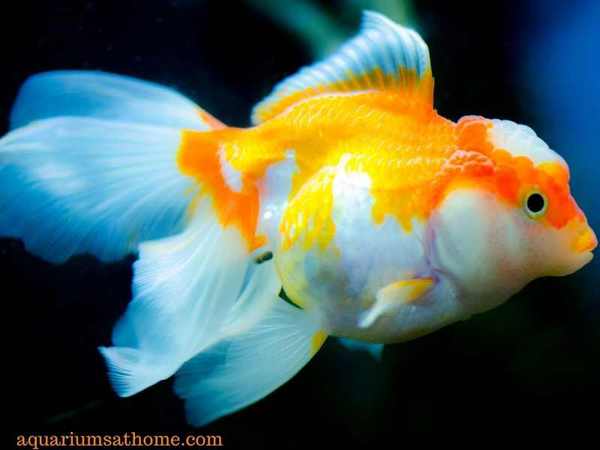
Pregnancy
Should your female goldfish appear more rounded than usual, she may be carrying eggs. If the aquatic environment is unsuitable for breeding, she may be egg-bound – a condition whereby female fish hold onto their eggs instead of releasing them.
Tumors
Tumors, whether cancerous or benign, can cause goldfish to appear bloated. Benign lumps will usually appear uneven and are of no cause for concern, unless they’re affecting your pet’s mobility or appetite. Cancerous malignancies, on the other hand, can rarely be treated.
What is Dropsy and How does It Affect Goldfish Size?
Dropsy is another term for edema and refers to the buildup of fluid inside the kidneys of a fish brought about by a bacterial infection. The root cause is an unsuitable aquatic environment – one that’s too cold and/or too toxic. Dropsy can result in fish swelling or lead to a compromised immune system.
To treat dropsy, begin by isolating the ailing fish. Moving it to a quarantine tank with slightly warmer water and administering table salt (1 teaspoon per gallon of water) will jumpstart the healing process. Medicating the fish with metronidazole and feeding it fresh, high-quality food is recommended.
How does Water Quality and Tank Size Affect Goldfish Size?
Apart from overfeeding, pregnancy, and illness, environment is a major factor in goldfish size. Water quality and tank size are directly linked to the overall health and longevity of your aquatic pets. If the parameters are ‘off’ or the tank is too small/overcrowded, goldfish can start to appear fat or bloated.
A tank with high ammonia levels can leave goldfish susceptible to dropsy. This illness is characteristic of swelling and can lead to death if not treated swiftly and effectively. The best way to prevent this is to keep the tank clean. Test the water parameters regularly and follow the water changing steps below:
- Turn off all tank electronics such as the heater, filter, and light. Forgetting to do this before removing water can burn out the motor to your filter and even cause your heater to explode!
- Take an empty bucket and remove 15-25% of the existing water from the tank – watch out for fish so they don’t end up in the bucket.
- Use a gravel vacuum or siphon to clean the substrate in the tank – this helps remove trapped waste material that can build up along the bottom and raise the ammonia levels.
- Treat the new tap water with a dechlorinating/conditioning agent and allow it to settle for a while before adding it to the tank.
- While waiting for the new water to reach room temperature, toss out the old water into the sink/bathtub or use it to feed household plants, if you prefer.
- Add the newly pretreated/conditioned water to the tank – do so slowly and carefully to avoid shocking your fish.
- Plug your electronic devices (heater, filter, and light) back in and check to make sure you haven’t underfilled the tank – the water should match the fill line on your heater and cover the filter.
How do You Fix Goldfish Bloat?
To treat a bloated goldfish, you need to determine the underlying cause first. If it’s a dietary issue, then feeding your fish only once a day with fresh, high-quality food should do the trick. If dropsy is the cause, then neutralizing the ammonia levels and raising the temperature of the water slightly should help.
Pregnancy can also make a goldfish appear ‘fat’ so, watch for signs of breeding. If a tumor is the culprit, be it benign or malignant, there’s very little that can be done. Observing your fish for signs of weakness (lethargy, loss of appetite, hiding, etc.) is pretty much it.
Can Goldfish Explode?
Goldfish can become so bloated that they look like they’re about to pop! They can’t – it’s nothing more a more than a myth that overeating, too hot water, or edema can cause your fish to explode. Unlike air, water isn’t compressible and typically the root of the problem is a buildup of fluid inside the body cavity.
Determining the underlying issue as to why your goldfish is swelling is vital to fixing the problem. Begin by reducing feeding and offering more fresh foods. If that doesn’t help, then watch for signs of dropsy such as a fat belly, scales that stand out like pinecones, bulging eyes, pales gills, and ulcers on the body.
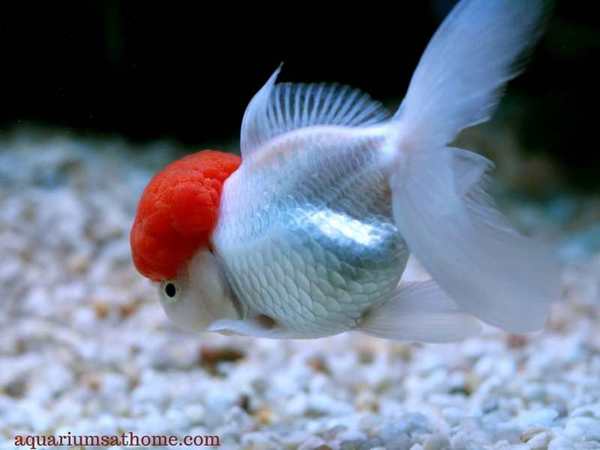
Is Bloat in Goldfish Contagious?
Bloat in fish isn’t contagious. In most cases, it’s the result of overfeeding. However, if poor or toxic water conditions are the culprit, then all fish that share the same unsuitable aquatic environment can become bloated as a result.
Dropsy is likely the cause of fish bloat once pregnancy, overeating, and tumors have been ruled out. Promptly treating this ailment is vital to recovery otherwise, your fish could suffer from kidney failure and liver dysfunction. It also leaves fish more susceptible to bacterial disease or a parasitic infection.
Final Thoughts
To sum things up, there are multiple reasons why goldfish appear ‘fat’ or bloated. If dropsy is the cause, then you need to administer antibiotics and raise the temperature of the water. If overfeeding or improper diet is to blame, then you need to cut-back and offer higher quality foods. If the tank/pond is too warm, then you need to lower the heat.
I hope you’ve found this article to be both interesting and informative. Thanks for reading and good luck with your aquarist hobby.
Recommended Posts
Why Do Goldfish Eat Their Own Poop?
What Happens if You Put Goldfish in a Pond?
What Kind of a Tank Do You Really Need for a Goldfish?



